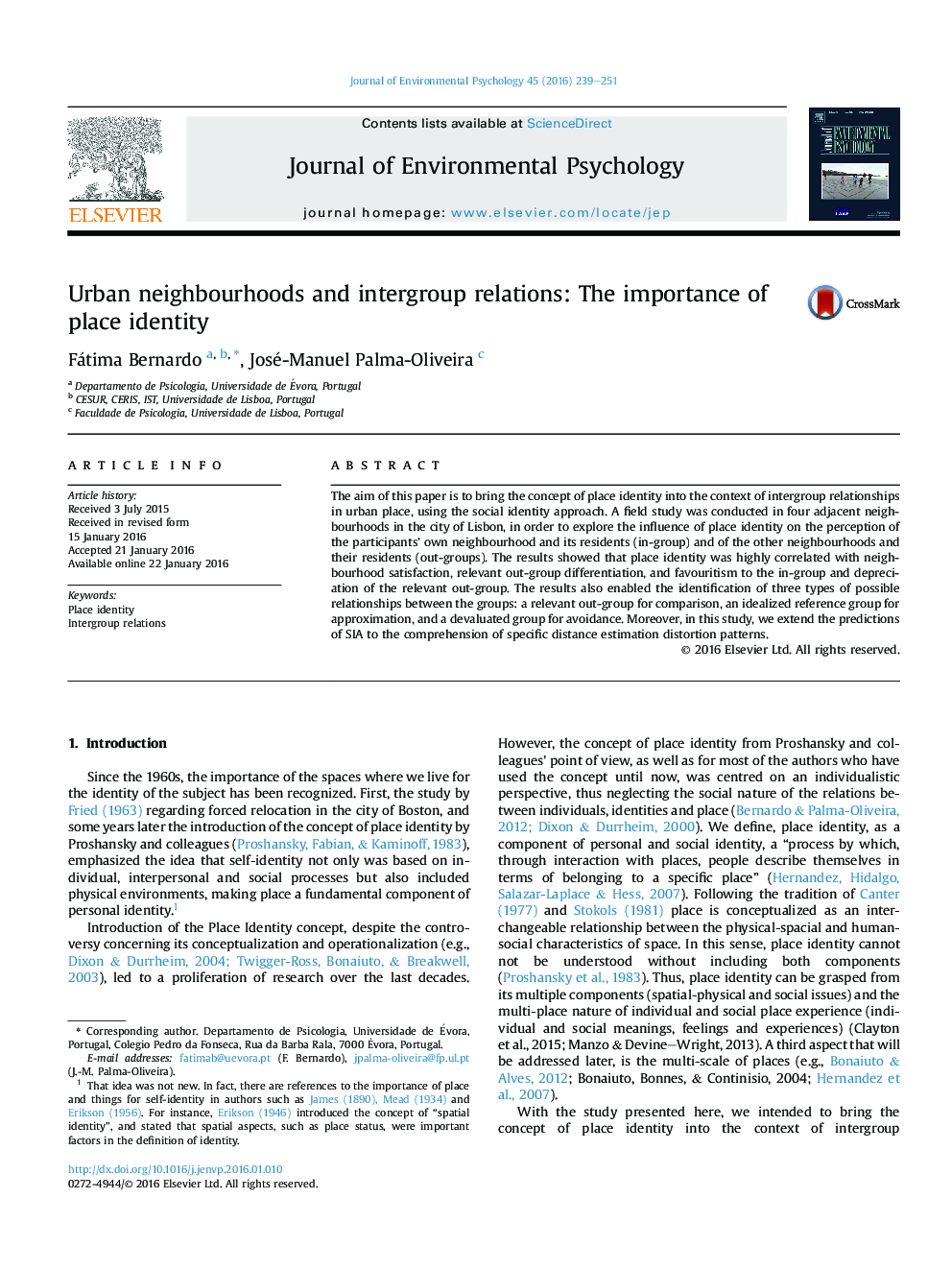| Article ID | Journal | Published Year | Pages | File Type |
|---|---|---|---|---|
| 7245691 | Journal of Environmental Psychology | 2016 | 13 Pages |
Abstract
The aim of this paper is to bring the concept of place identity into the context of intergroup relationships in urban place, using the social identity approach. A field study was conducted in four adjacent neighbourhoods in the city of Lisbon, in order to explore the influence of place identity on the perception of the participants' own neighbourhood and its residents (in-group) and of the other neighbourhoods and their residents (out-groups). The results showed that place identity was highly correlated with neighbourhood satisfaction, relevant out-group differentiation, and favouritism to the in-group and depreciation of the relevant out-group. The results also enabled the identification of three types of possible relationships between the groups: a relevant out-group for comparison, an idealized reference group for approximation, and a devaluated group for avoidance. Moreover, in this study, we extend the predictions of SIA to the comprehension of specific distance estimation distortion patterns.
Keywords
Related Topics
Social Sciences and Humanities
Psychology
Applied Psychology
Authors
Fátima Bernardo, José-Manuel Palma-Oliveira,
